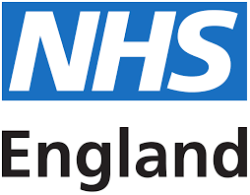Supporting NHS @Home to develop learning networks
The challenge
NHS England launched pilot programmes to test new approaches to providing better connected, more personalised care in people’s homes. The programmes were called NHS @home. They wanted us to help them set up learning networks for the adopting sites to share lessons and gather evidence for the effectiveness of the interventions.
Learning networks are comprised of members who, driven by a common purpose, share learning to improve outcomes. They are particularly effective for implementing and spreading innovations.
As part of their @home work, NHS England wanted to develop and test two new, country-wide approaches to support patients to better manage long-term respiratory conditions and heart failure at home.
This work included developing the pathways and piloting them with early adopter sites. The aim was to refine the overall approach ahead of national implementation.
At the beginning of their implementation journey, the adopting sites were working in isolation and did not have strong connections with their peers in other locations. NHS England wanted support to bring these sites together, build a community of champions for the @home approaches, and develop a culture of shared learning.
A core part of the work was the design and delivery of a peer learning offer to support the early adopters with implementation. It was also an opportunity to identify challenges and share best practices by compiling lessons learned and resources so that future adopting sites could learn from their colleagues’ experience.
Our approach
Effective learning networks start with co-production. With the NHS @home teams, we kicked off with a scoping phase. This involved stakeholder interviews and workshops with prospective members.
We got two things from this initial engagement. Firstly, a charter for the network detailing the network’s purpose statement, membership, participation opportunities and measures for success. And secondly, an engaged group of prospective members, who were excited by the offer.
Due to the co-production approach, there were some differences in the design, delivery and content for Lung Health @home and Managing Heart Failure @home. However, in both cases, we supported the networks with launch events, and a programme of carefully designed learning events over a 9-12 month period.
Each event was evaluated by the membership, and subsequent events were tailored to reflect that feedback, keeping the co-production approach live through the lifespan of the project.
The events themselves combined member-led sessions in which people shared learnings and data on their progress. We also showcased action learning relating to specific challenges, with guest speakers on topics like engaging community partners, and addressing health inequalities. Each session was captured in a brief, accessible summary that was shared with the members and added to the FutureNHS site.
Results
Kaleidoscope supported more than 25 learning and sharing events during the year. Members consistently rated learning events as relevant, useful and valuable and reported that participation improved their work.
Insights and lessons from the sessions will continue to be shared among @home adopting sites through summaries and resources posted on the FutureNHS platform.
I always find the peer sessions highly useful, both from an ideas point of view and discussing the barriers in launching any initiatives.
@home Network Member
Kaleidoscope have effectively upskilled us, so that in future we will be able to undertake similar activity ourselves. Their expertise, effort and collaborative approach prompted excellent feedback from a host of senior stakeholders. Kaleidoscope’s guidance and adaptability not only produced a valuable end product, but instilled greater confidence in our staff. We are really grateful for the partnership with Kaleidoscope.
Isabel Queenan, Senior Programme Manager – Delivery Unit, Primary Care and Community Services
Chief Operating Officer (COO) Directorate

